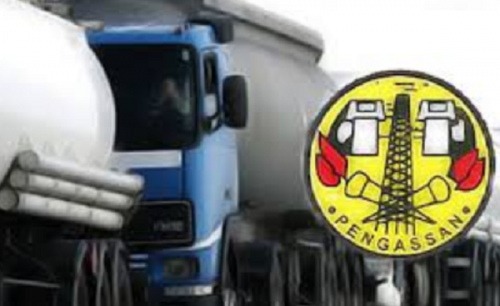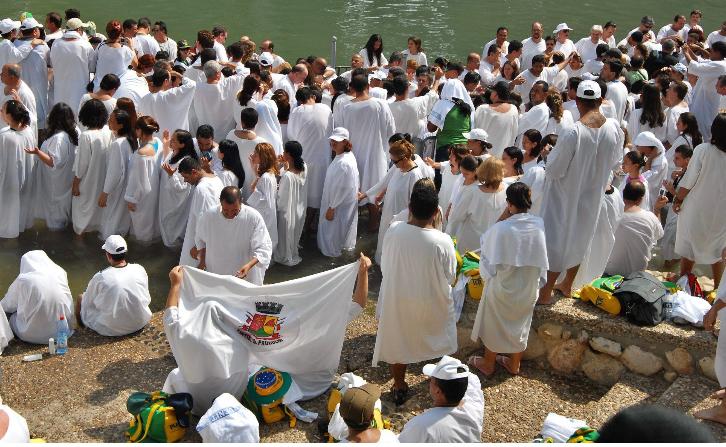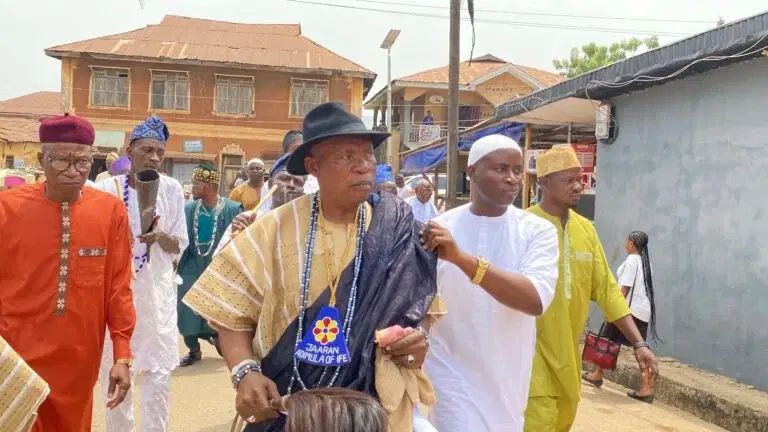Petrol Sector Stinks – Emir Lamido
The Nigerian crude oil industry is not only oily but also crude.
That was the damning verdict of the Emir of Kano, HRM Muhammadu Sanusi 11, while speaking on the Cable News Network (CNN) on Wednesday.
The emir, the immediate past Governor of the Central Bank of Nigeria (CBN), identified the unresolved controversy over kerosene subsidy as an example of what he regarded as the fiscal misconduct in the sector.
While refraining from dwelling on many of the country’s challenges because of the coming general elections, so as not to be seen as supporting one candidate against another in the presidential election, Sanusi said Nigeria could not continue to be run as if it is for the benefit of a few.
Former military ruler, Major General Muhammadu Buhari of the All Progressives Congress (APC) is squaring up against incumbent President Goodluck Jonathan of the Peoples Democratic (PDP) in the election.
The emir said that he aligned with the position of General Buhari that corruption would kill Nigeria if the country failed to kill it.
He said: “The Nigerian political elite must recognize that if this does not change, the country cannot survive indefinitely, we cannot continue like this.”
He spoke further: “There has to be investments in the capital, there has to be investments in infrastructure, in power, healthcare, in education. The state cannot just exist to make a few people very rich.
“Corruption is an old story in Nigeria. The perception has always been bad. And I don’t think it helps matters by being in denial. I have spoken a lot about these in the past, because it’s too close to election and these matters can get into politics. But General Buhari is right, we have to do something about corruption if the country is to survive.”
On his earlier allegation that $20 billion was missing in the oil sector, which a forensic investigation by a world renowned accounting firm has declared untrue, the emir said: “My position at the Central Bank was that there was this gap of 20 billion (dollars). The reconciliation between what NNPC (Nigerian National Petroleum Corporation) exported and what it reported to the Federation Account.
“I raised a number of issues that I think have not yet been to be discussed and addressed sufficiently. One of them is billions of dollars being paid as subsidy for kerosene without appropriation by the National Assembly and against a presidential order and we don’t know who authorized those payments yet. Nobody has come out to say, ‘I authorized the payment, I made a mistake, it was tough.’ I think those issues need to be addressed. And until we address them and begin to close all the loopholes in government revenue, we are going to continue to create opportunities for extraction of rent and destruction of the economy.”
He spoke further: “It could be 20 billion (dollars) at the end of the day. After reconciliation, they could account for 10 or 12 billion dollars. I do know that these issues reflect unconstitutional and illegal withholding of revenue from the Federation Account.
“The country is being depressed today, oil price has crashed. The currency has been devalued, The capital market has collapsed, government revenues are in very bad shape. Whoever wins, this government or opposition, will have to deal with these issues. The petroleum sector is a major drain on the resources of the country and this has to be addressed.”
Asked about his opinion on whether abject poverty fuels insurgency like the Boko Haram, Sanusi said: “I think it is important to task governments – federal, state and local governments – on the welfare of the people. Focus on growing an economy that will create jobs. I understand that there is a strong connection between economic deprivation and political violence. Many of these things are not just craze harebrained ideas. They are born out of political calculations to change things and create opportunities for some people and some of these things are born out of the great inequalities that we see between the rich and the poor in all regions of the country. I think whoever is in the federal government must recognize that if these issues are not addressed it will be very, very difficult to govern.”








